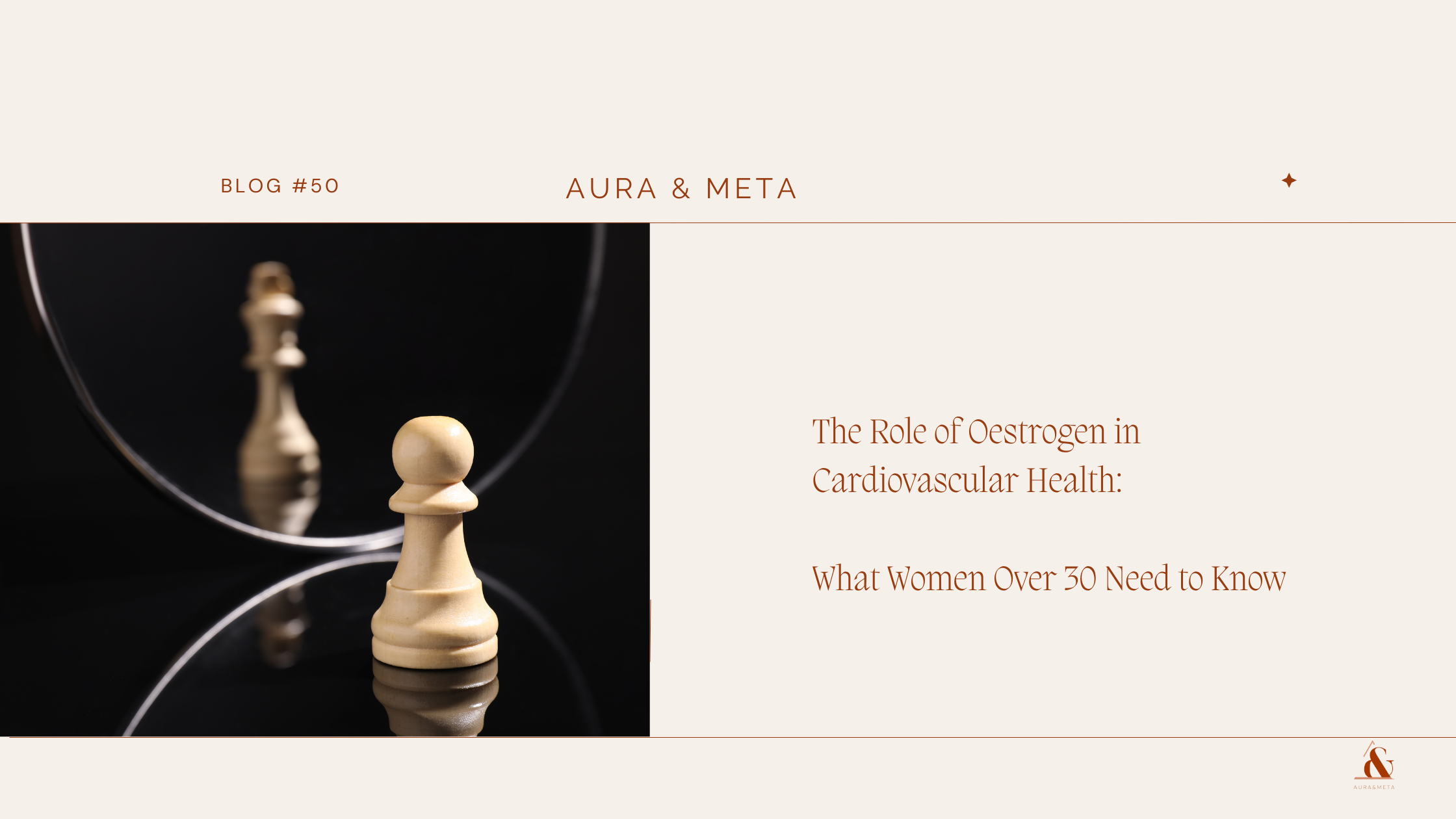As women age, especially post-30, their risk of developing cardiovascular issues increases, often linked to the declining levels of oestrogen experienced during perimenopause and menopause. Oestrogen plays a crucial role in maintaining heart health, and its decrease can have significant impacts on cardiovascular function. In this blog, we will explore how oestrogen affects cardiovascular health and provide strategies to support heart health through diet and lifestyle changes.
Understanding Oestrogen’s Role in Cardiovascular Health
Impact on LDL Cholesterol
Oestrogen has a beneficial effect on cholesterol levels, particularly by increasing high-density lipoprotein (HDL) cholesterol (often referred to as “good” cholesterol) and reducing low-density lipoprotein (LDL) cholesterol (known as “bad” cholesterol). LDL cholesterol is notorious for contributing to plaque buildup in the arteries, which can lead to atherosclerosis—a condition that increases the risk of heart attack and stroke. As oestrogen levels decline, LDL cholesterol levels may rise, leading to a higher risk of cardiovascular disease.
Metabolic Changes and Obesity
The decline in oestrogen also affects the body’s metabolism, often leading to weight gain, particularly around the abdomen. This shift in fat distribution is associated with an increased risk of metabolic syndrome, a cluster of conditions that include hypertension, insulin resistance, and elevated blood glucose levels. Together, these factors elevate the risk of developing heart disease.
Inflammatory Response
Oestrogen has anti-inflammatory properties that help protect the inner lining of the arteries, known as the endothelium. When oestrogen levels drop, this protective effect is diminished, leading to an increase in inflammation throughout the body. Chronic inflammation is a significant contributor to the development of cardiovascular diseases, as it can damage the arteries and promote the formation of arterial plaques.
Arterial Vasodilation
Oestrogen promotes arterial vasodilation, which is the widening of blood vessels, allowing for better blood flow and reducing blood pressure. The reduction in oestrogen during menopause can lead to impaired vasodilation, resulting in increased blood pressure—a major risk factor for cardiovascular disease.
Strategies to Support Heart Health Through Diet and Lifestyle Changes
1. Focus on a Heart-Healthy Diet
- Increase Fiber Intake: A diet rich in soluble fibre can help reduce LDL cholesterol levels. Foods like oats, barley, beans, lentils, and fruits are excellent sources of fibre.
- Consume Healthy Fats: Incorporating sources of omega-3 fatty acids, such as fatty fish (salmon, mackerel), flaxseeds, and walnuts, can support heart health by reducing inflammation and promoting healthy cholesterol levels.
- Antioxidant-Rich Foods: Berries, leafy greens, nuts, and seeds are high in antioxidants, which can help reduce oxidative stress and inflammation in the cardiovascular system.
- Limit Saturated Fats and Trans Fats: Reducing intake of foods high in saturated fats (like red meat and butter) and trans fats (found in many processed foods) is crucial for maintaining healthy cholesterol levels.
2. Maintain a Healthy Weight
Managing weight, particularly around the abdomen, is important for reducing the risk of metabolic syndrome and cardiovascular disease. A balanced diet combined with regular physical activity can help maintain a healthy weight and improve heart health.
3. Regular Physical Activity
Engaging in regular physical activity, such as brisk walking, swimming, or cycling, can help maintain a healthy weight, reduce blood pressure, and improve cholesterol levels. Exercise also promotes better circulation and overall cardiovascular health.
4. Manage Stress
Chronic stress can exacerbate the negative effects of declining oestrogen on the cardiovascular system. Incorporating stress management techniques such as mindfulness, meditation, and yoga can help lower blood pressure and reduce the risk of heart disease.
5. Consider Functional Testing
To gain a comprehensive understanding of your hormonal health and its impact on cardiovascular health, consider functional testing such as the DUTCH test. This advanced hormone test can provide valuable insights into your oestrogen levels, cortisol production, and other key hormones that influence heart health. At Aurameta, we offer a range of functional tests that can help tailor a personalized health plan to support your cardiovascular system during menopause and beyond. https://aurameta.com/functional-testing/#Dutch-Test

